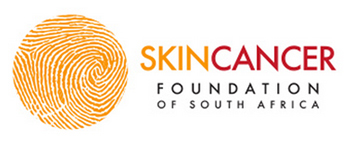Atopic Eczema treatment in children and adults

Atopic Eczema
Atopic eczema is an extremely common inflammatory condition of the skin. It may start at any age but is most common in children, affecting 1 in every 5 children in the South Africa at some stage. We use the term ’atopic’ to describe a group of conditions which include asthma, eczema and hay fever. These conditions are linked to an increased activity of the allergy component of the immune system.
Many factors appear important for its development. These include defects in the skin barrier and abnormalities in the normal inflammatory and allergic responses. A tendency to atopic conditions often runs in families.
Eczema signs and symptoms
Atopic eczema usually starts in the first months of life but it may also develop for the first time in adulthood. The main symptom is an itch. Scratching in response to itch may cause many of the changes seen on the skin. Itch can be severe enough to interfere with sleep, causing tiredness and irritability.
Eczema self-care
Moisturise your skin as often as possible, ideally at least 2-3 times each day.
Wear gloves to protect your hands if they come into contact with irritants, such as when doing housework. Rinse well after swimming, and apply plenty of moisturiser after drying.
Wear comfortable clothes made of materials such as cotton, and avoid wearing wool next to your skin. Try to resist the temptation to scratch. It may relieve your itch briefly, but it will make your skin itchier in the long term. Smooth a moisturiser onto the itchy skin.
Avoid close contact with anyone who has an active cold sore as patients with eczema are at risk of getting a widespread cold sore infection. Do not keep pets to which there is an obvious allergy.
Keep cool. Overheating can make eczema itch more. Treat eczema early – the more severe eczema becomes, the more difficult it is to control. Many factors in a person’s environment can make eczema worse. These include:
-
heat
-
dust
-
wool
-
pets
-
irritants, such as soap and detergents
-
infections
-
foods
Eczema treatment
Most dermatology eczema treatments are topical. With more severe eczema, some people need to take oral medication as well.
Regular emollient therapy is the mainstay and most important part of treatment for all patients with eczema. This includes the:
-
application of a moisturiser
-
washing with a moisturiser instead of soap
-
the use of a moisturising bath oil
Contact us for an eczema consultation
During your consultation at Clinica London, we’ll take a full history and perform a skin assessment of your eczema. We’ll give you a treatment plan based on the severity of your eczema, which may include a variety of treatments as discussed above.
Sometimes we need to take a skin biopsy if the diagnosis is uncertain. We carry this out under local anaesthetic in the minor ops room at Clinica London. We send this sample to histopathology for analysis. It is important that we follow up with you at appropriate time points to ensure an improvement in your rash.

